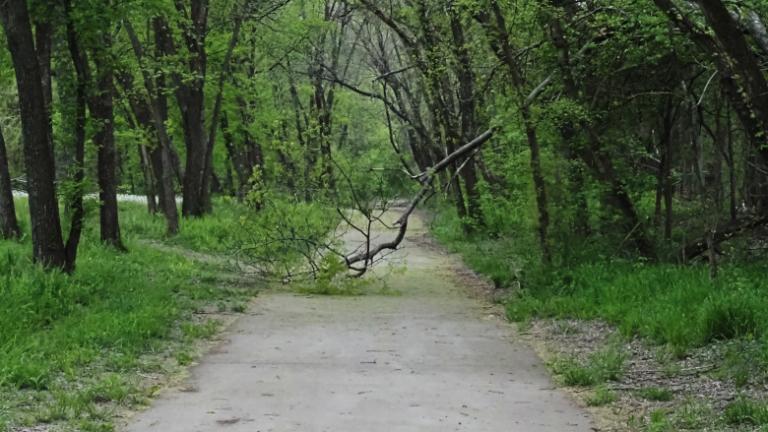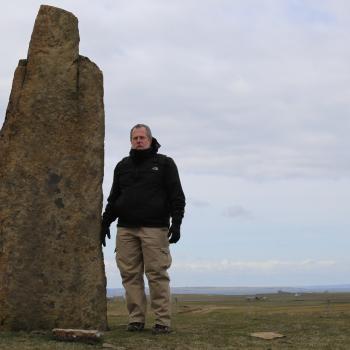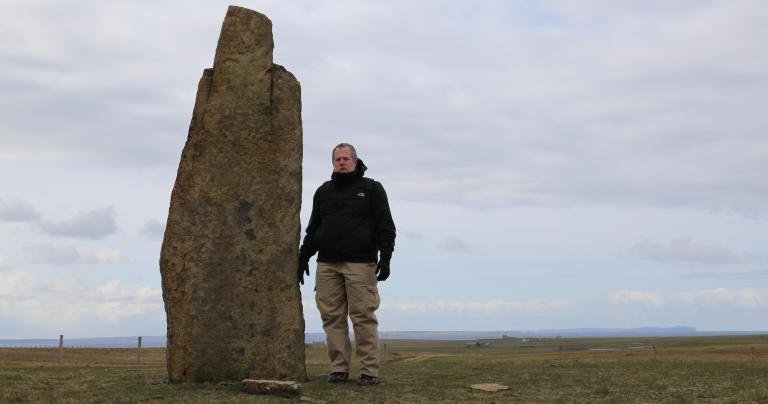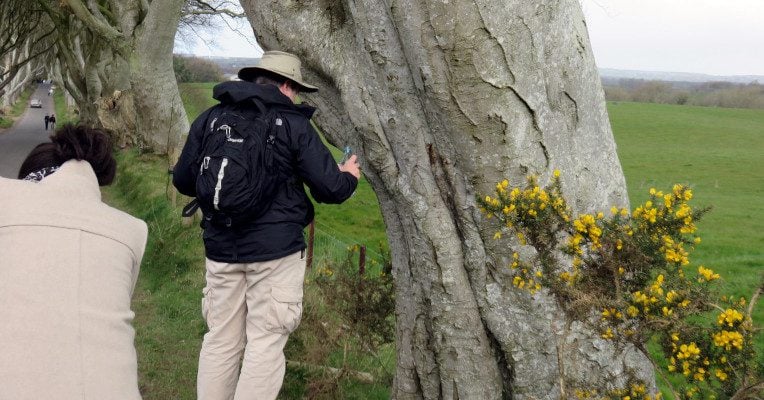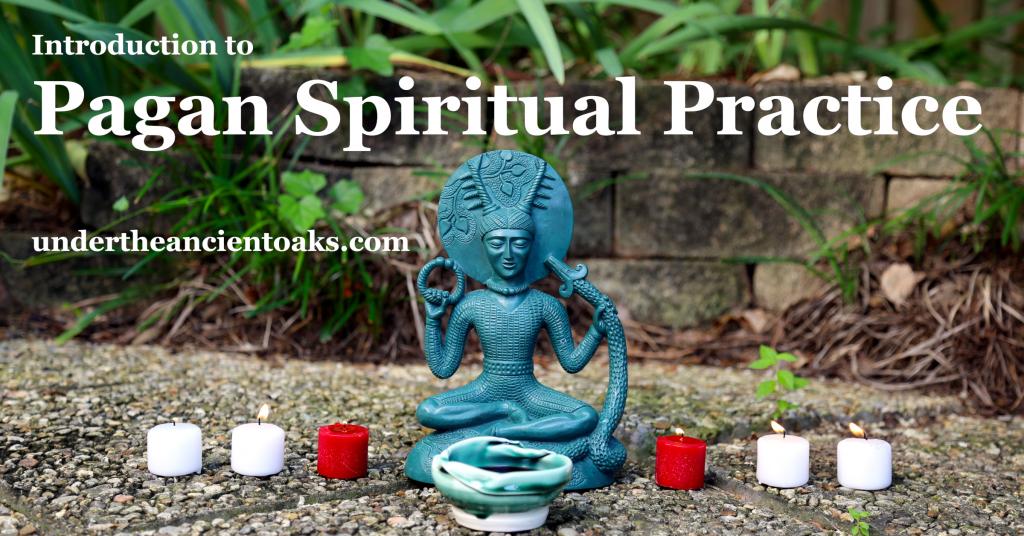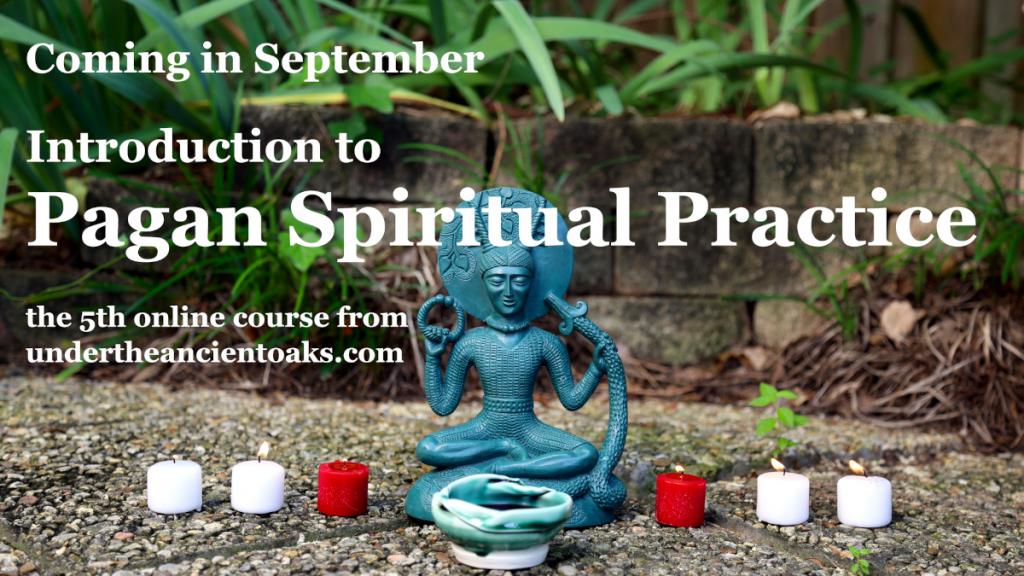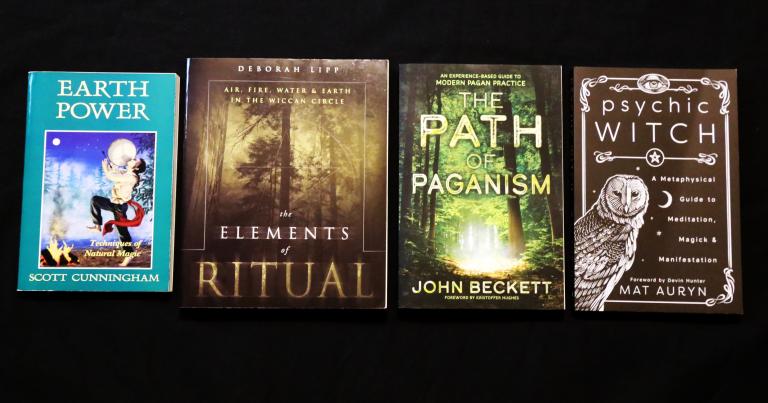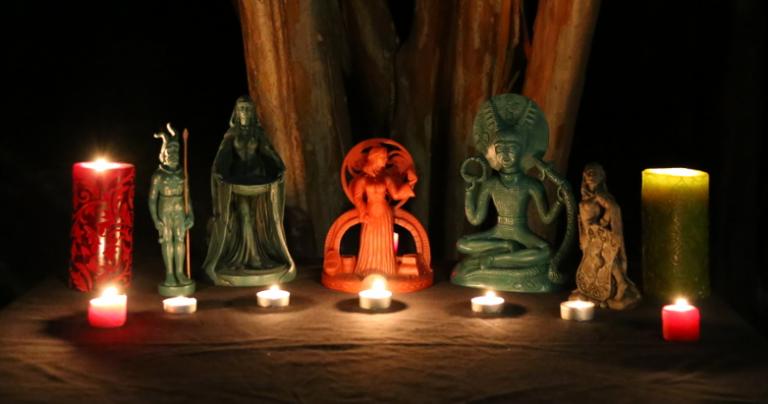If you ask me about starting a spiritual practice, my recommendations will begin with the “big three” – prayer, mediation, and offerings. I recommend these practices because they’re what I do on a regular basis. Push for more recommendations and I’ll suggest reading and study, following the Sun and the Moon, and spending time outdoors.
This past week I remembered the importance of a lesser known but very valuable spiritual practice: journaling.
I don’t want to dump on all of you, so let’s just say that the last few weeks have been rather stressful for me, in a way that’s made me question some things I thought were settled. The good news is that I’ve been here before – and I wrote about it. I have records in my own words about what was going on, how I felt, and what I did about it.
It took me a bit to find those journal entries. I thought they were from 1994, or maybe 1997. Turns out they were from 2001 – just a few months before my Pagan epiphany (are those two things connected? I never considered it, but looking back on them now, how could they not be connected?).
Here’s what’s important: when I read through what I wrote 22 years ago, my current situation became far more clear. The needs and desires I had then are the same needs and desires I have now. The insecurities I thought were gone were just being managed – the stress of the last few weeks has interfered with that management and allowed them to rise to the surface again.
But how I handled “all this” in 2001 worked. And so I know what I need to do now… with a few tweaks. I have learned a thing or two in the past 22 years, after all.
And part of what I need to do is to share what I’ve learned – about the importance of journaling as a spiritual practice.

How to begin a journaling practice
Just start writing.
It really is that simple – even I can’t overcomplicated it. If writing in a fancy blank book with a special pen makes it feel spiritual to you, then get a fancy blank book and a special pen. Three-ring binders and loose leaf paper make it easier to organize by dates and/or themes. My earliest journals were written on lined tablets and placed in manilla folders. I still have them, stored in a metal filing cabinet.
Once I got my own computer I started journaling in text files. I still do. While there are benefits to writing things by hand, almost all my writing is done on a computer – like I’m doing right now with this blog post. This is what I’m comfortable with, so it’s what I do. I can write in my journal at home, at work, or from anywhere on my phone. The files are stored in four different places – I’m not likely to lose them.
Electronic journals can easily be searched. Most times I can find something in a matter of seconds. This time was more complicated – it took about five minutes. I used to be pretty good at flipping through books and files looking for key words, but the computer is far better.
The main thing is to just start writing.
And then keep writing.
What to journal about?
All my journal entries begin with today’s date. And then I write whatever is on my mind that feels important.
Scrolling through this year’s journal (I keep each year in a separate file) I see comments about health, weather, situations at work, politics, travels and travel plans, and especially about how I’m feeling about any and all of that. There are a lot of comments about exercise. In the years where I was trying to run a marathon, at least half my journal is a training log – even though I kept an actual training log in a spreadsheet.
There are accounts of spiritual experiences, thoughts on what they mean, and ideas for what comes next.
And there are plans. Lots of plans. Plans for writing projects, plans for spiritual projects, plans for getting through these difficult times in which we live.
I like making plans. Just making plans helps. Carrying them out helps a lot more. Spontaneity is great, but if you wait for everything to happen spontaneously you’re likely to be waiting a long time. Schedule time for the things that are important to you.
Over the years I’ve learned to identify things that I’m going to want to remember. Some of them I want to remember for my annual year-end retrospectives. Others I know I may need in future years.
Mainly, write about what’s important, to you, right now.
How much to write?
Write as much as you need and no more.
There are stretches where I write two or three paragraphs every day for two weeks. There are other stretches where I don’t write for a week or more.
I can’t easily count how many days I write, but I can easily see that last year I wrote 33,581 words in my journal. That’s a small book… but it’s still less than 100 words a day. My longest journal was 2001: 58,355 words. That’s almost as long as Paganism In Depth. The shortest year was 2012 – I only wrote 6227 words. That’s about five ordinary blog posts… and there are some months with only one entry.
That’s a lot of variance. In general the longer years are from when I was trying to work through some things. The shorter years are from when things were going OK: not so great that I wanted celebrate them and not so bad I needed to analyze them.
If you want advice, I’d say to err on the side of writing too much rather than too little. Honestly, unless it starts to interfere with the rest of your life, it’s hard to write too much.
Write as much as you need and no more.
“Writing myself sane”
I can’t find the origin of the phrase “I wrote myself sane.” I thought it came from Dorothy Parker, but I can’t find any sources for it… and in any case, most of her famous quotes are humorous, even if they deal with serious matters. I don’t think I said it first, but maybe I did. That’s not important.
What’s important is that it’s true.
I should have been in therapy in my late 20s and early 30s. I did try at one point – it didn’t go well and I discontinued it. And then there were those years in my mid-30s that exemplify the saying “before you self-diagnose yourself with depression, first make sure you are not just surrounded by assholes.” When I was able to extract myself from that situation (a bad job in a bad location working with some genuinely bad people) things got better.
In both situations, journaling helped. A lot.
The key to dealing with any problem is to define the problem as clearly and objectively as possible. The best way to do that is to write it down.
And then look at what you wrote. Is it precise or is it vague? Does it describe the root cause or is it swimming in surface issues? Is it honest or does it avoid things you find unpleasant or embarrassing?
Once you’ve got something that’s precise and deep and honest, what can you do about it?
As you work through it, does what you do help? Or do you need to try something else?
I did a good job at identifying the root cause in 2001. Having a record of that makes it a lot easier to find the root cause in 2023.
And to do something to make things better.
Working through what I really believe
Looking over my 2001 journal, I see a lot of spiritual exploration. That epiphany on Thanksgiving night didn’t come out of nowhere. I was trying to answer the call to Paganism that I heard eight years earlier, but I still hadn’t dealt with the baggage of my fundamentalist upbringing. The journaling work put me in the position where I knew I had to act when I heard “get serious or move on.”
A lot of the theological reflections you read on this blog begin in my journal. They start with an idea: sometimes a good idea that needs to be developed, other times a bad idea that needs to be clearly and definitively refuted. Journaling helps me figure out what I believe – what my heart and my head tell me is true. Journaling helps me figure out how to put what I believe into practice.
And then when I do, and when it proves helpful, I’ve got something to share with the world.
The sooner you start, the better
Journaling is no substitute for prayer, meditation, and offerings. But also, prayer, meditation, and offerings are no substitute for journaling.
For all that age brings challenges, it also brings benefits – mainly the benefits of experience. Whatever happens, we’ve seen it before, or we’ve seen something like it before. So we can do a better job of putting it into context and a better job of responding to it.
Memories are good, but memories are fallible. The process is easier with good written records – with a good journal.



